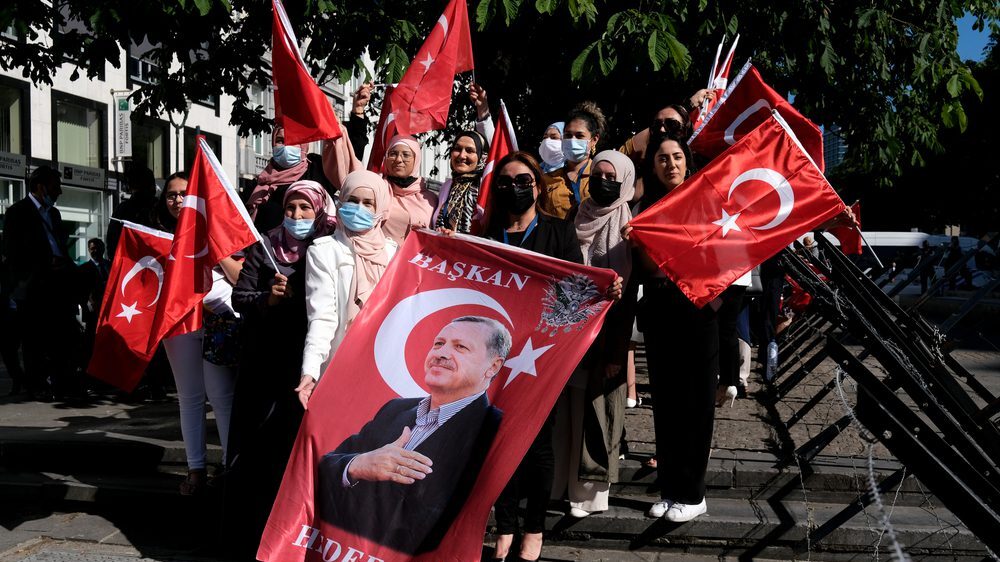
Supporters stand with Turkish flags outside a security perimeter as they wait for the arrival of Turkey’s President Recep Tayyip Erdoğan prior to a NATO summit in Brussels, Belgium
.
Photo: Alexandros Michailidis / Shutterstock.com
Belgian politicians have called for the system of dual citizenship to be abolished after figures revealed that 72% of Turkish expats voted for the authoritarian AKP party led by President Erdoğan in last week’s national elections.
Erdoğan’s AKP party came out on top in elections with 49% of the vote and is expected to defeat liberal challenger Kemal Kılıçdaroğlu in the second round of elections later this month.
3.4 million Turkish expats were eligible to vote in elections that saw the conservative AKP party perform stronger than expected against secular opponents. Belgium is home to 500,000 residents of Turkish origin with 85,000 Belgian residents participating in the first round of voting.
Support for Erdoğan’s averaged over 60% in most Western European nations including Germany with the AKP electoral base noticeably higher in Belgium.
Pundits had hoped that Erdoğan’s hold over the Turkish expats in Western Europe would thaw, but first-round election results showed no major shift in immigrant voting patterns.
Vlaams Belang MEP Ellen Samyn linked the strong showing for the AKP to naive state policies that nurtured multiculturalism and called on authorities to present Turks with an ultimatum on continued support for the Turkish regime.
Our nationality is not a menu of choices: if all those Erdogan supporters prefer an Islamic dictatorship to Western values, then they do not belong here but in Turkey … Present Turks with a choice: either you stay here and no longer vote for Turkish elections, or you move to Turkey.”
Erdoğan is increasingly at odds with the West for his foreign policy outlook and a growing tolerance of soft-core Islamism contrary to the secular foundation of the Turkish Republic. The Turkish government has often been accused of weaponising its expats to influence European elections. There is also an ongoing standoff between Europe and Turkey over Swedish NATO membership epitomising a growing chasm between Europe and Ankara.
Kurdish advocacy groups have highlighted infiltration risks posed by Turkish ultranationalists with ethnic Turks having a strong presence in Belgian local politics. Twelve Diyanet mosques in Belgium—called so because of their association with the Turkish Directorate of Religious Affairs of the same name—were recently found to be under foreign influence by an investigation conducted by the Flemish Information and Screening Service.
